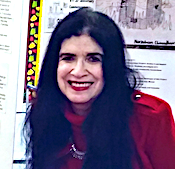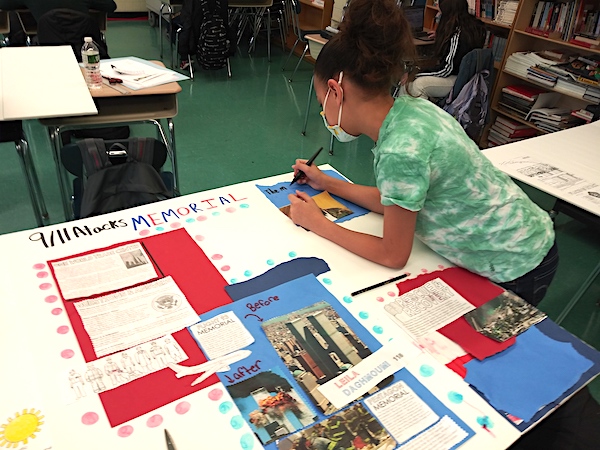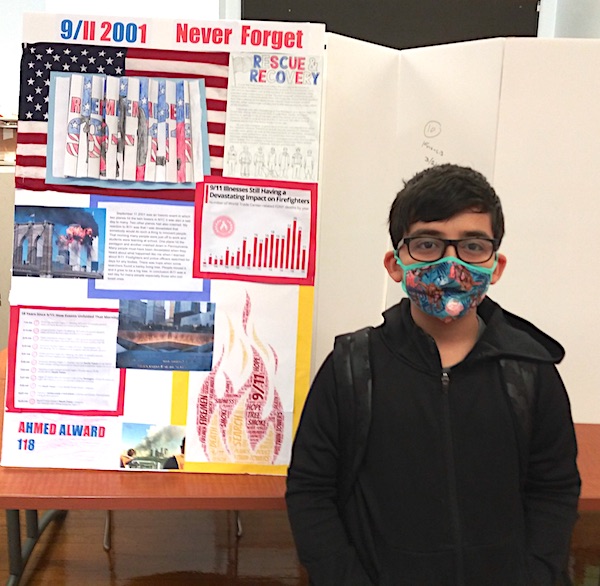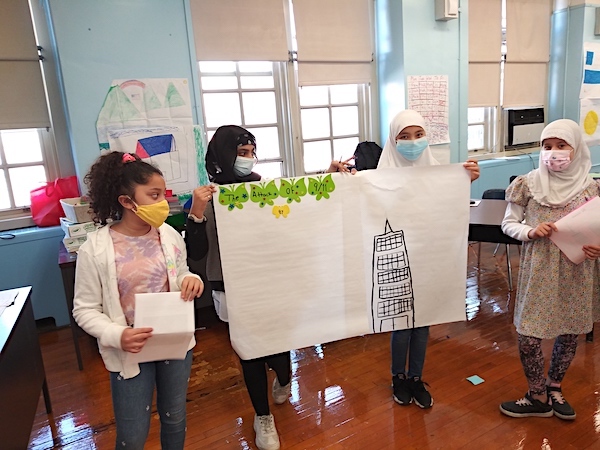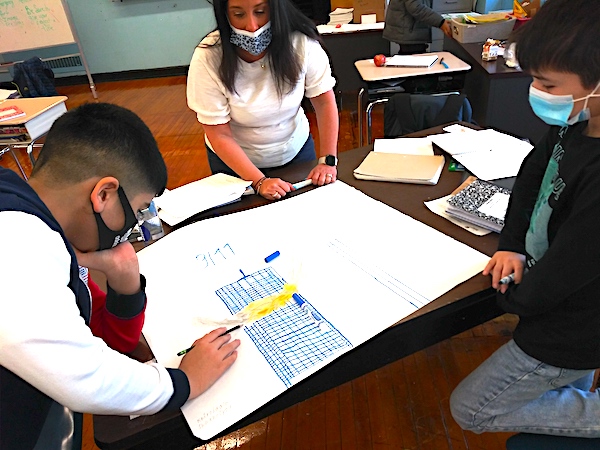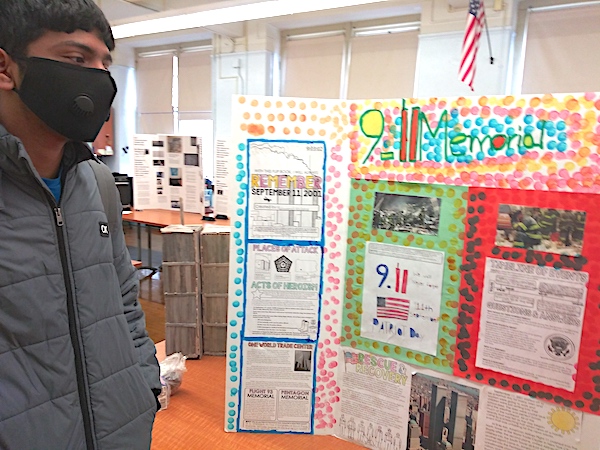The Ditmas 9/11 Project Rejects “Learning Loss”
A middle school project in Brooklyn focuses on life lessons and legacy to move forward.
This spring a team of multi-content middle school educators from Ditmas IS 62 in Brooklyn have watched as our remote and hybrid students engaged in a 20th anniversary project researching and commemorating the 9/11 tragedy.
Over 300 students in grades 6, 7, and 8 – including special needs and language learners – have all watched commemorative ceremonies and researched 9/11 events through a mix of print and digital resources, oral history interviews with family and neighbors, and discussions with others.
These students, all born years after that tragic day in our city, have been inspired by this project to create art illustrations, models, individual posters, student audio histories, original songs, book reviews of 9/11 historical fiction, and a commemorative ceremony of their own, offering a student perspective.
Astonishingly, these student-driven activities and outcomes have continued through May. A pre- and post-project survey of 9/11 factual knowledge and middle school attitudes will help educators understand the gains in skills and knowledge our students have achieved as a result of their dedicated work.
Our antidote to “learning loss”
Our success with this project (supported by our data) has prompted our school to recommend this PBL model to other NYC schools for their funded summer enrichment programs. There’s lots of hands on, student-driven learning, and the model includes detailed Common Core standards and a curriculum with direct connections to ELA reading, writing, speaking, collaboration and knowledge/research standards – as well as Social Studies standards and digital citizenship components.
Yet principals in other schools are reluctant to consider such a real-world immersion project because they are focused on making up the learning loss caused by the pandemic.
Has there been learning loss, even though in New York City students have had remote instruction from end of March 2020 and are now in a hybrid/virtual phase? Of course. How could there not be, when many students and new and veteran teachers struggled to master Google Classroom with perhaps two or fewer days training. Even students with accessed devices from the public school system struggled at home.
In addition, many teachers who were highly competent in a physical school setting did not (prior to the pandemic) intensely use digital resources, apps or platforms. As a result, their instruction in content they knew well was often hampered by the learning curve required to seamlessly utilize digital platforms and resources. Some learning loss for students was inevitable.
But even given an acknowledged learning loss – now being assessed by many NYC public schools using reading and mathematics diagnostics prior to school year’s end – does this mean that authentic full-fledged projects which focus on literacy skills, life lessons and our cultural legacy – as well as digital citizenship – need to be suspended as schools immediately wade into “making up” some skills and content learning?
We don’t think so. Our team of teachers at a Title 1 inner city middle school can bear witness to the depth of life lessons, legacy and digital citizenship learning that can happen. Rather than immediately plunging students who returned to school on a hybrid schedule or remained remote into ongoing remedial skills work, we saw the students eager to step out of their emotional and in some cases physical Covid quarantine space and plunge into this meaningful project work.
Covid had brought not only health fears but increasingly real and up-close-in-their-home worries about food security and rent money (despite the stall on evictions). With their parents out of work and some parents undocumented so not able to access stimulus funds, our 9/11 project allowed students and families to shift their attention to another catastrophe when New Yorkers were both grievously challenged but also inspired.
Our middle schoolers immersed themselves in videos and documentaries about a crisis that took place in recent times – intense, but still at a distance from Covid. Many students were able to talk about 9/11 experiences with their parents and relatives and learn how they were affected, locally and globally. In fact, some of the most potent and illuminating oral histories our students elicited from their families came from members who in 2001 were in Japan, Bangladesh, Mexico, Ecuador, Haiti, Uzbekistan, Pakistan, and other countries.
While the vast majority of family oral history comments were filled with descriptions of their tears and fears during those days in 2001, they also assured their children that they had glimpsed persons coming together to help one another, and that they learned lessons from those days that shaped their future lives — lessons about the value of family love, community and the impermanence of material structures.
Many of our Muslim students’ families were able to point out anti- and unjustified Muslim bias in the media and the public mind, including the faulty conception that all Muslims were responsible for or supported the attacks perpetrated by a small number of fanatical terrorists.
As the student participants in our project experience their emotions and demonstrate their growing understanding of this recent history event through illustrations of the falling towers, vibrant posters and other art, models of rebuilt towers, songs, speeches and ceremonies, their “learning loss” is being replenished as they apply literacy skills, gain life lessons from contemporary history about resilience and coming together, and make connections between past injustice to ongoing injustice in their own era.
Gaining perspective on learning loss
What do educators understand about crisis and learning interruptions? Douglas Fisher and Nancy Frey have commented extensively on learning loss and how best to address it in various venues, including remote, hybrid and F2F in-classroom learning.
In an article for The Reading Teacher (Nov/Dec 2020 – read the summary), they note the key importance of “inquiry projects based on content area learning, and the curation of websites focused on information related to grade level science and social studies.” They advise us to “tune in” to what students need right now. They also note that teachers need to “help students feel connected” to each other and the world in crisis times.
Our 9/11 20th Anniversary Project is inherently about inquiry into recent history. At Ditmars IS 62, our middle grades students have been deeply engaged in the project work, which is intertwined with our Common Core Standards aligned lessons and book reviews of pertinent 9/11 YA works.
The essential question that kicks off the project is focused on helping students born after 2001 make personal connections to 9/11. As Fisher and Frey advise, the project immediately brings parents and families – from the United States and across the globe – into the work as knowledgeable and capable oral history partners. Their partnership is captured in Google docs, Flipgrid, MP4 files and other means – and it lies at the core of this history project which is also about bonding to one another as families, peers, and friends.
In their introduction to the Distance Learning Playbook, Grades K-12 (2021), Fisher and Frey talk about how learning accelerates when the student is in control of his or her learning. In our case, this project resulted in 11 students identifying themselves as student leaders and meeting regularly in a remote afterschool session where they developed additional student leadership ideas for a book, original songs, and posters. (See the free Frey-Fisher video series.)
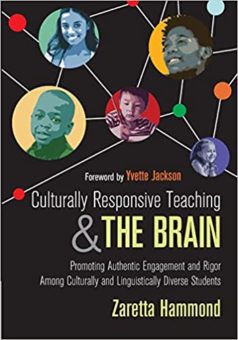
Hammond wisely notes that the pandemic’s remote and hybrid teaching “is actually an opportunity for kids to consolidate what they already know and braid it together with their funds of knowledge from home and community to make more connections that will help them to do deeper learning and increase comprehension.”
She writes that “kids are going to have learning loss because we have come to believe only the teacher can be the facilitator of learning.”
But we have also seen the evidence that many students can have a learning gain when they come to see that they can facilitate their own learning and that teachers are not the “givers of knowledge” – we are here to guide and support.
Students and their parents, engaged in a contemporary history project relevant to them as persons and community members, can in fact construct their own learning and in doing so “gain” skills, content and agency as life-long learners and citizens.
Is it not better to fill a wrongly conceptualized, finite cavity of “learning loss” with literacy rich reading, viewing, discussing, creating, life-sharing and legacy-linking than to resort to filler material composed of worksheets and activities focused on remedial (and often isolated) skills?
As a city and nation, we will never forget how we came together and rebuilt after 9-11. Is there not a necessary 2021 post pandemic academic learning loss lesson in that as well? Let us focus on life lessons, project making, and learning that moves us moving forward – not backward – as we help our students gain the power to become self-directed, capable independent thinkers and learners.
VISIT DITMAS IS 62’S 9-11 PROJECT WEBSITE
Dr. Rose Reissman is Director of the Writing Institute at the Ditmas Education Complex in Brooklyn NY. She is an ongoing classroom public school educator who continues to teach literacy, project-based learning, special education, gifted and talented students, and ELL students.
Dr. Reissman is coauthor of Project-Based Literacy: Fun Literacy Projects for Powerful Common Core Learning (Information Age Publishing, 2016) and has written widely on project learning and multicultural education. Her article “In Search of Ordinary Heroes” was published in Educational Leadership magazine, before 9/11.
Dr. Reissman would like to acknowledge:
Marielena Santiago, Principal DITMAS IS 62
David Pretto, Superintendent, District 20
Michael Downes, Head Teacher for the project
Angelo Carideo , Web Resource Designer and Videographer
Amanda Xavier, ELA Editor
Dina Francis, 6th Grade Implementer

